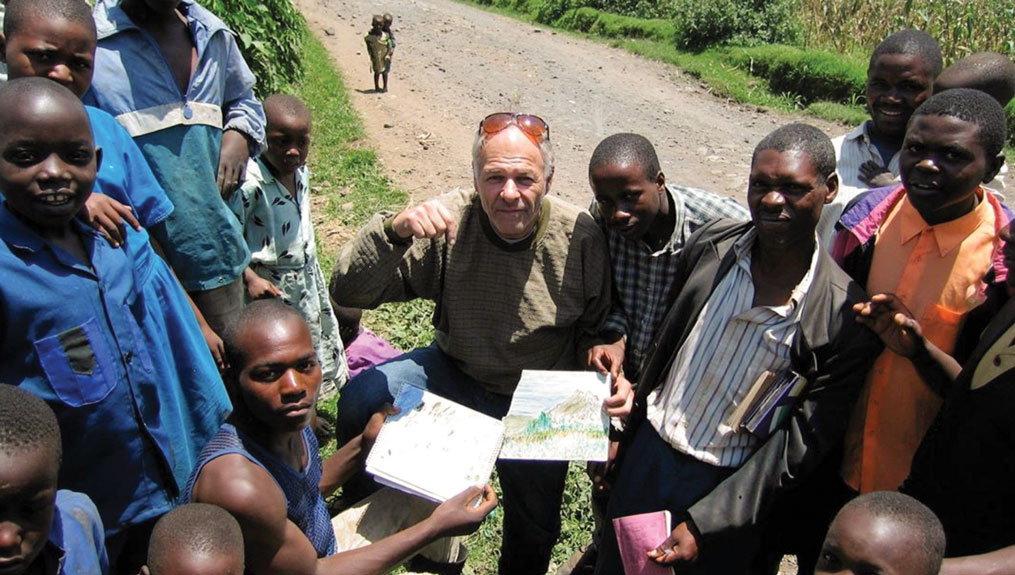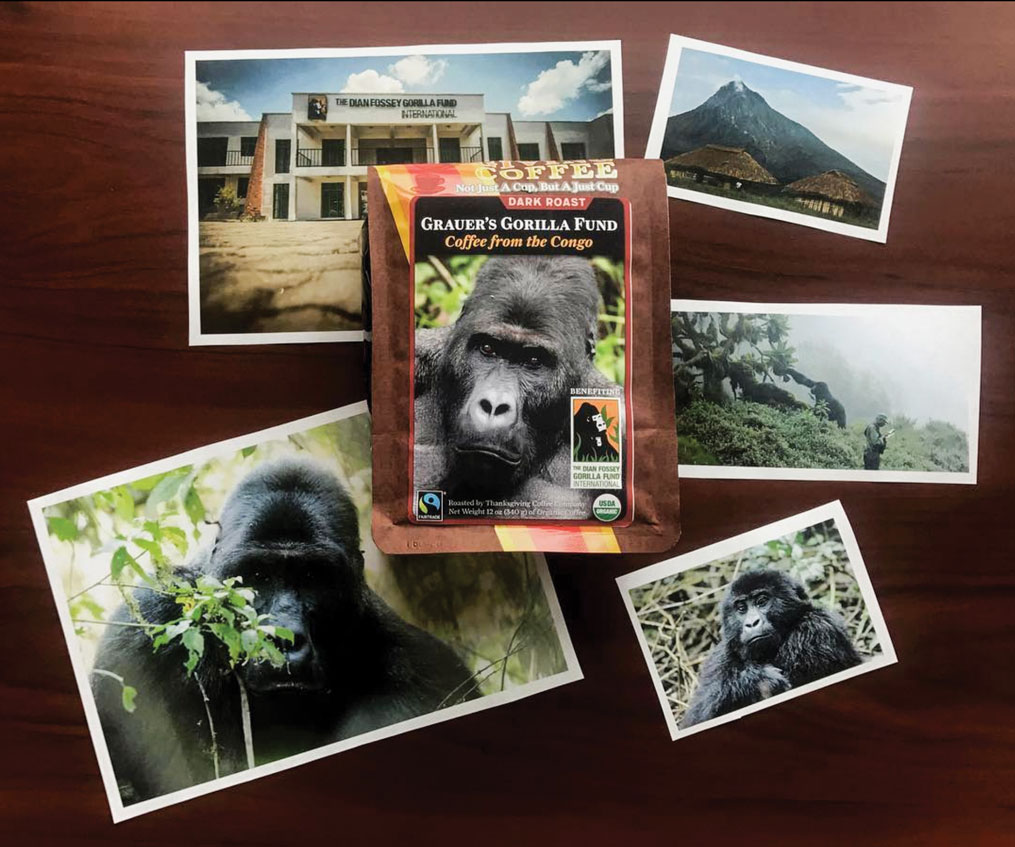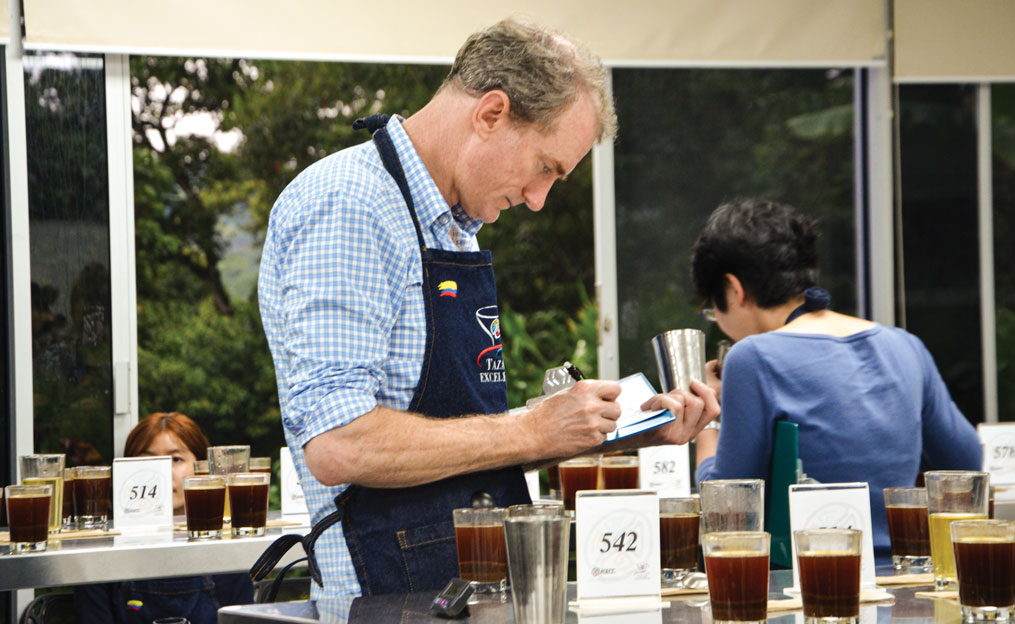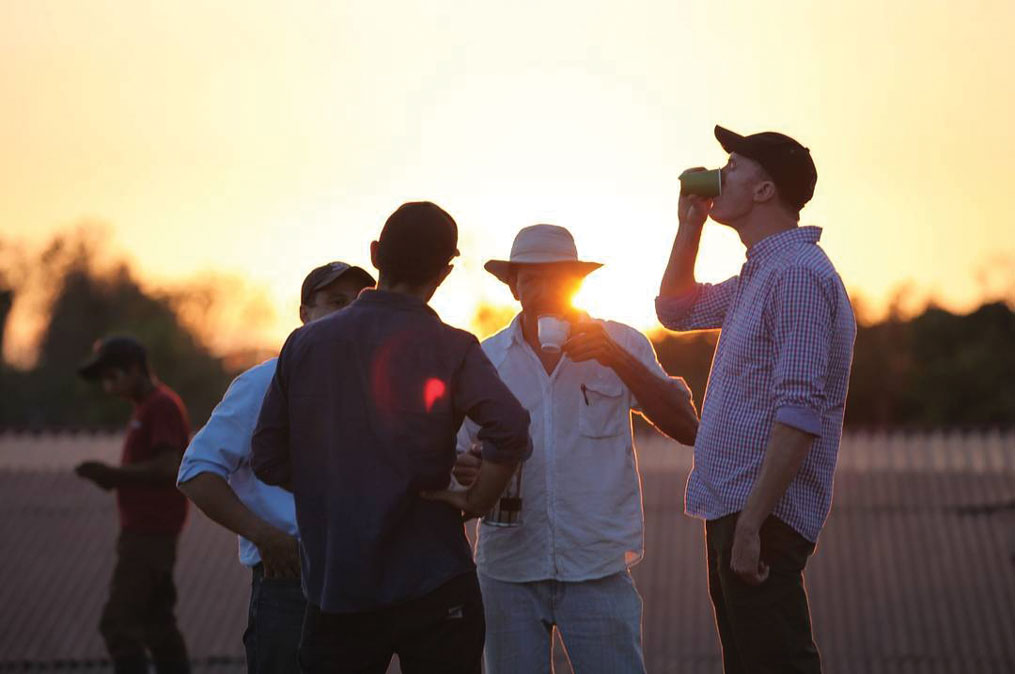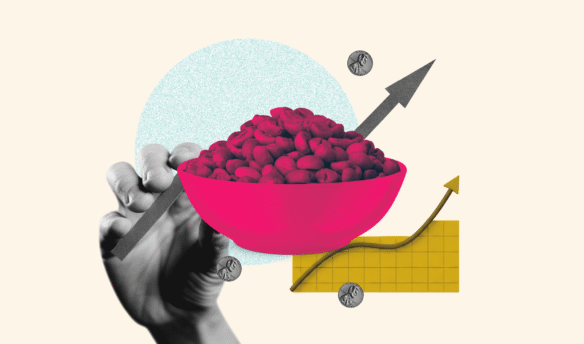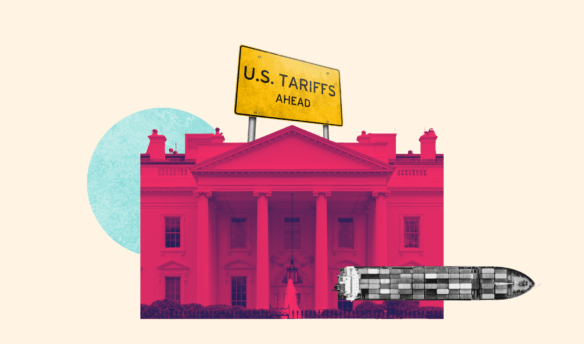Paul Katzeff of Thanksgiving Coffee in Rwanda. Photo: @ajustcup
[A]cross the country, many independent coffee and tea shops have embraced sustainability as part of their intrinsic brand. It’s a way of signaling to buyers, partners, and customers that they’re motivated by more than just the business’ financial bottom line.
Incorporating Social Outreach
At Thanksgiving Coffee, an artisan roaster based in Fort Bragg, California, owner Paul Katzeff’s passion for community outreach, sustainable sourcing, and a wide array of environmental causes has become an integral part in how the company does business—and how it markets itself.
Launched in 1972, Thanksgiving Coffee has been using the tagline “Not Just a Cup, But a Just Cup” since April 1985, when Katzeff made a life-changing trip to Nicaragua to meet directly with coffee farmers.
“Business can get pretty boring when it’s only about price and volume and revenue,” says Katzeff, who worked as a social worker in New York City and as a community organizer in Aspen, Colorado, before launching his coffee roasting career on California’s Pacific Coast. “That trip made me realize this business is about people, not product.”
Since that meeting with growers, Katzeff has made sustainable sourcing a driving priority of his business, fighting to end the U.S. embargo on Nicaraguan coffees in the 1980s and, in the decades since, working tirelessly to advocate for more equitable prices for coffee farmers throughout the world.
Over the years, Thanksgiving Coffee has also partnered with an array of environmentally-focused non-profit organizations, including the American Birding Association, the Dian Fossey Gorilla Fund, and Friends of the Earth, to develop and market uniquely branded “cause coffees” that direct a percentage of proceeds from each bag back to the non-profit partner.
Its “Song Bird” coffees feature shade-grown organic beans in an effort to support growers who maintain a tropical canopy habitat for migratory birds, while its “Bee Bold” series, produced in partnership with Friends of the Earth, has helped increase community awareness about the importance of pollinators.
“It’s about providing a platform for the causes. It’s not about making money,” says Katzeff. “I used Bee Bold to educate our citizenry in Mendocino County [about pollinators], and Fort Bragg then became the first Certified Bee City in California.”
Proceeds from other Thanksgiving Coffee varieties support clean water initiatives and interfaith peace partnerships for coffee-growing communities in Uganda, among other efforts.
“I am taking $1.50 out of the retail price of every pound and putting it back into the co-op, and the rebates are going to help pay for clean water,” says Katzeff. “That’s how we work.”
At home, the roastery has donated more than $1 million to area non-profits and even invites local citizens to raise their own community gardens on one-third of its property.
“As human beings, every once in a while, we’re given the opportunity in life to make a difference,” says Katzeff. “Either you’re open to it, or not. Either you see it, or you don’t.”
Making a Difference
Campos Coffee uses the motto “Quality Coffee Cultivated by Good” to describe its platform of social, environmental, and community outreach efforts across the globe. The Australian-based café chain, which also operates locations in Park City and Salt Lake City, Utah, was launched in 2002 by founder and CEO Will Young, who’s serious about making sure that each cup of Campos Coffee not only tastes good, but is also doing good in the world.
“We have amazingly loyal customers,” says Young. “And, of course, we want to provide them with delicious coffee, but we also want them to know that they’re not just putting money in the till. We want them to know that, as a company, we have a purpose—and it’s not just making a profit. We’re trying to do some amazing things with the money and time our customers and staff invest in us.”
Campos’ commitment to visiting its growers each year in order to advocate for fair pricing has been key to promoting sustainability and positive impact across its supply chain, according to Young.
“It has been eye-opening to see how you can change a community and the quality of life there, just by supporting the growers and purchasing their coffee at a good price,” he says.
Campos’ current outreach efforts include a soil regeneration project in Kenya, where farmers are working to rejuvenate swaths of farmland by enriching them with manure and other organic material.
The company also provides ongoing support to refurbish and expand the 1,000-student Suke Quto School in Ethiopia’s Guji Zone (where some of its coffee is grown) and annually funds a team of Australian surgeons, through Open Heart International, to Rwanda to perform pediatric cardiac surgeries, among other outreach initiatives.
“Seeing how much impact these efforts have, it drives me to really want to do more,” says Young.
Campos also advocates for growers by supporting demand for the “ultra-premium” coffee market—coffees that can sell for $100 or more per pound.
“We think supporting and helping grow the ultra-premium category helps provide a roadmap to growers who want a way to break free of the seed price market, which can be soul-destroying,” says Young. “And we hope that in doing so, the growers can get out of the commodity market into at least the specialty market, where they can work with companies who care about them.”
